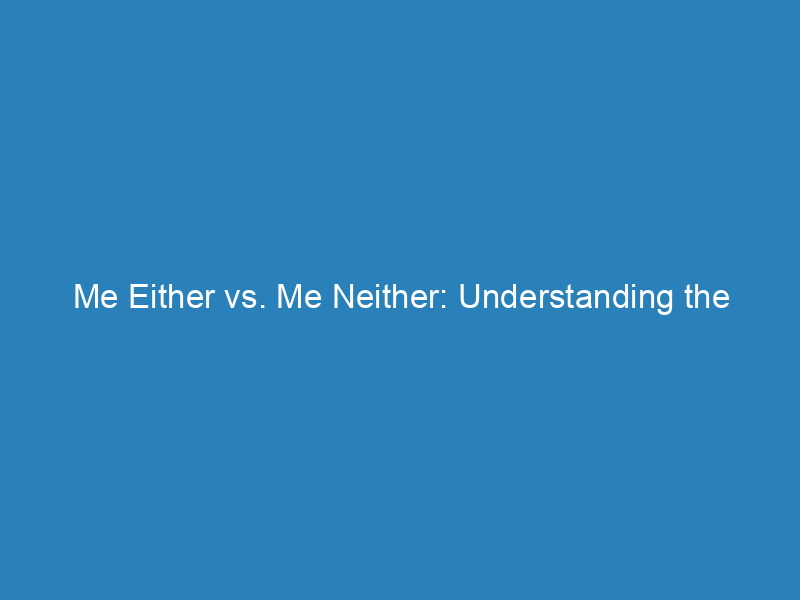
Me Either vs. Me Neither: Understanding the Grammatical Debate
When it comes to casual conversations and written dialogue, the phrases “me either” and “me neither” often pop up. But which one is grammatically correct? Let’s delve into the nuances of these expressions and their usage in American English.
Understanding the Phrases
Both “me either” and “me neither” are often used to express agreement with a negative statement, but neither is formally correct. These phrases serve as idiomatic expressions rather than standard grammatical constructions.
Example of Usage
Imagine a conversation between two people:
Person 1: “I don’t want to go to work today.”
Person 2: “Me either” (or “Me neither”).
In this context, both responses convey agreement, indicating that Person 2 shares the same sentiment as Person 1. However, from a grammatical perspective, they fall short.
More Appropriate Alternatives
In standard American English, there are more grammatically accurate ways to respond:
- “I don’t want to go to work either.”
- “Nor do I.”
- “I also don’t feel like working.”
While these options are correct, they may feel somewhat formal or stilted in casual conversation, which could explain the popularity of “me either.”
Which Phrase Is Preferred?
Though both phrases are commonly used, our recommendation leans toward “me either.” The reasoning is that “either” suggests inclusivity. For example, one might say, “Either chocolate or vanilla is a great choice,” when agreeing with a preference. Conversely, “neither” has a negative connotation that can make responses feel exclusive. Therefore, saying “me either” can feel like a more inclusive way to express agreement.
The Importance of Clarity in Communication
Despite the widespread understanding of these phrases, the choice to use them—or to opt for more precise language—can have implications for how we are perceived. Striving for grammatical accuracy can enhance clarity and contribute to a more professional image in communication.
Join the Conversation
For more insights into grammar and language usage, stay tuned for updates on our blog. If you have questions or thoughts about this topic, feel free to share your comments below. Your input might just inspire our next discussion!

